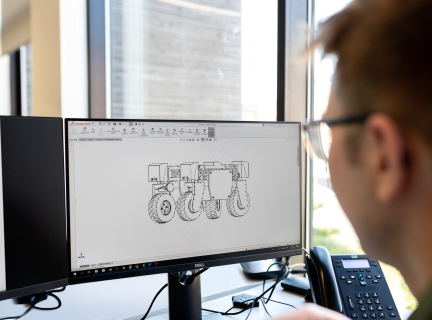Skills, Education and Experience

Skills
- Critical thinking and problem solving
- Analytical and detail oriented
- Decision making
- Project management and team work
- Proposal writing and presentations
- Financial management
- Committee work – industry ethics
Education and Experience
To work as an Industrial and Mechanical Engineer you require:
- a Bachelor's degree in industrial engineering or in a related engineering discipline
- Master's degree or doctorate in a related engineering discipline may be required
- licensing by Engineers and Geoscientists British Columbia in order to practise as a Professional Engineer (P.Eng) or Professional Licensee (P.L. Eng)
Qualifications
This occupation is regulated in British Columbia.
This means that if you are working as an engineer you must either:
- be registered as a Professional Engineer in BC
OR
- work under the direct supervision of someone who is registered as a Professional Engineer in BC
Licensing Requirements for Mechanical Engineers
You must be licensed by Engineers & Geoscientists British Columbia to use the title “Engineer.” This allows you to approve engineering drawings and reports and to practise as a professional engineer (P.Eng.).
Registration requires:
- graduation from an accredited educational program
- four years of supervised work experience in engineering
- successfully passing the professional practice examination
- completion of the law and ethics seminar
If you do not meet the minimum academic requirements for P.Eng, you may register as Professional Licensee (P.L.Eng), which requires:
- academic qualifications other than an engineering degree from a recognized university
- several years of experience in a defined area of engineering practice
For more information:
